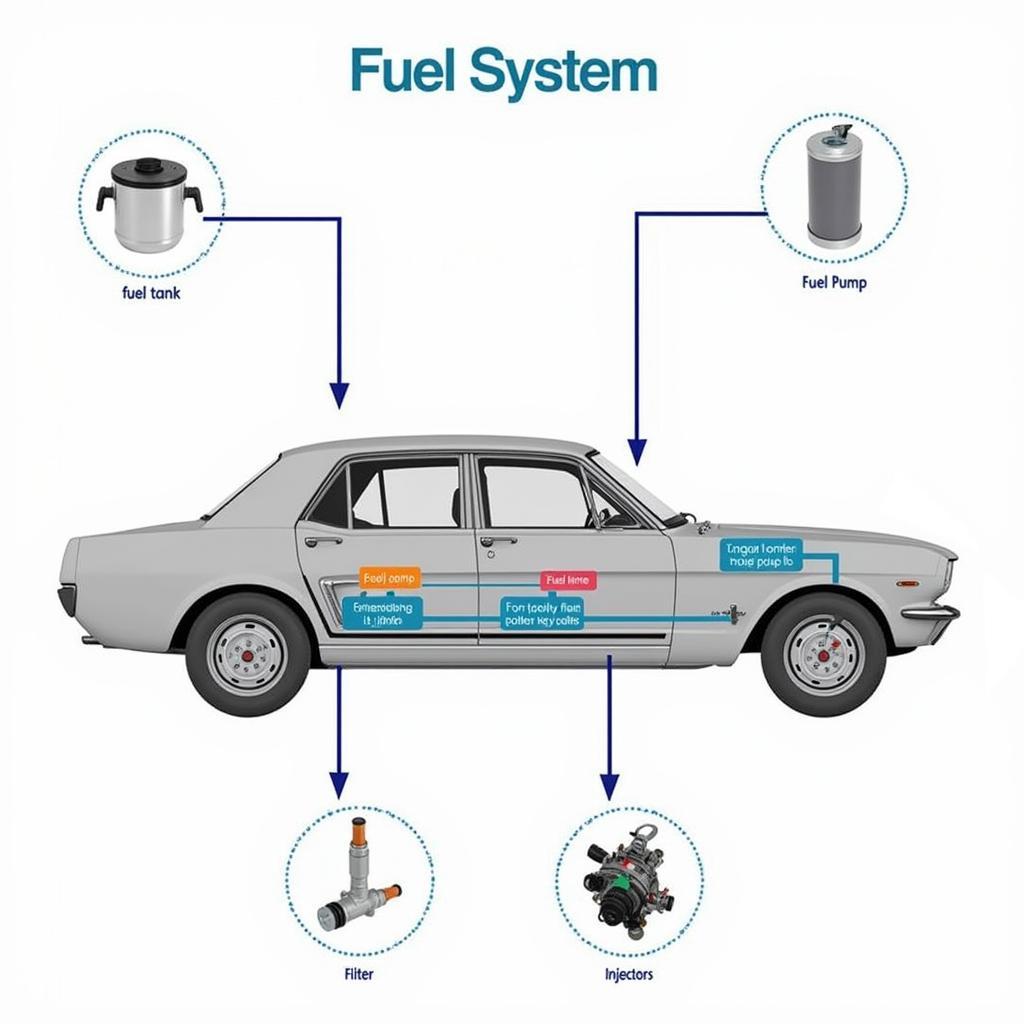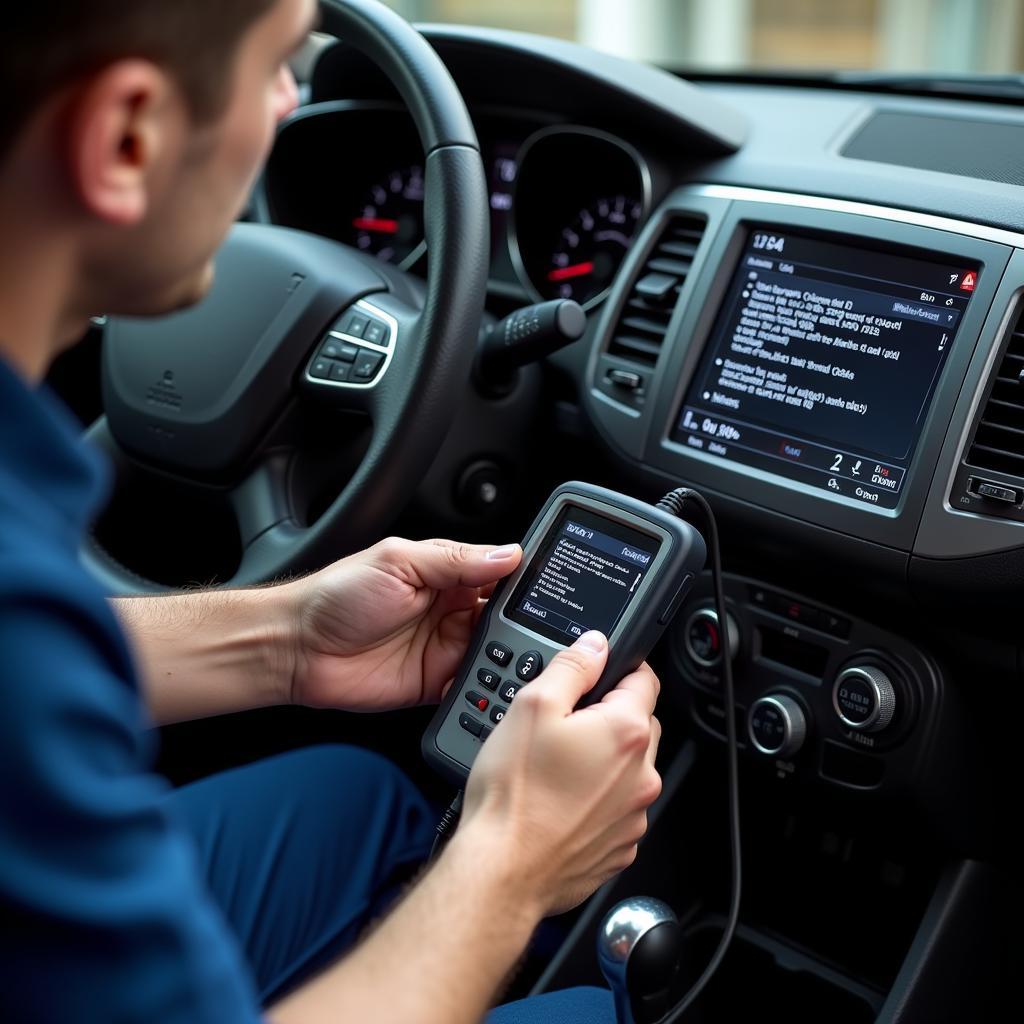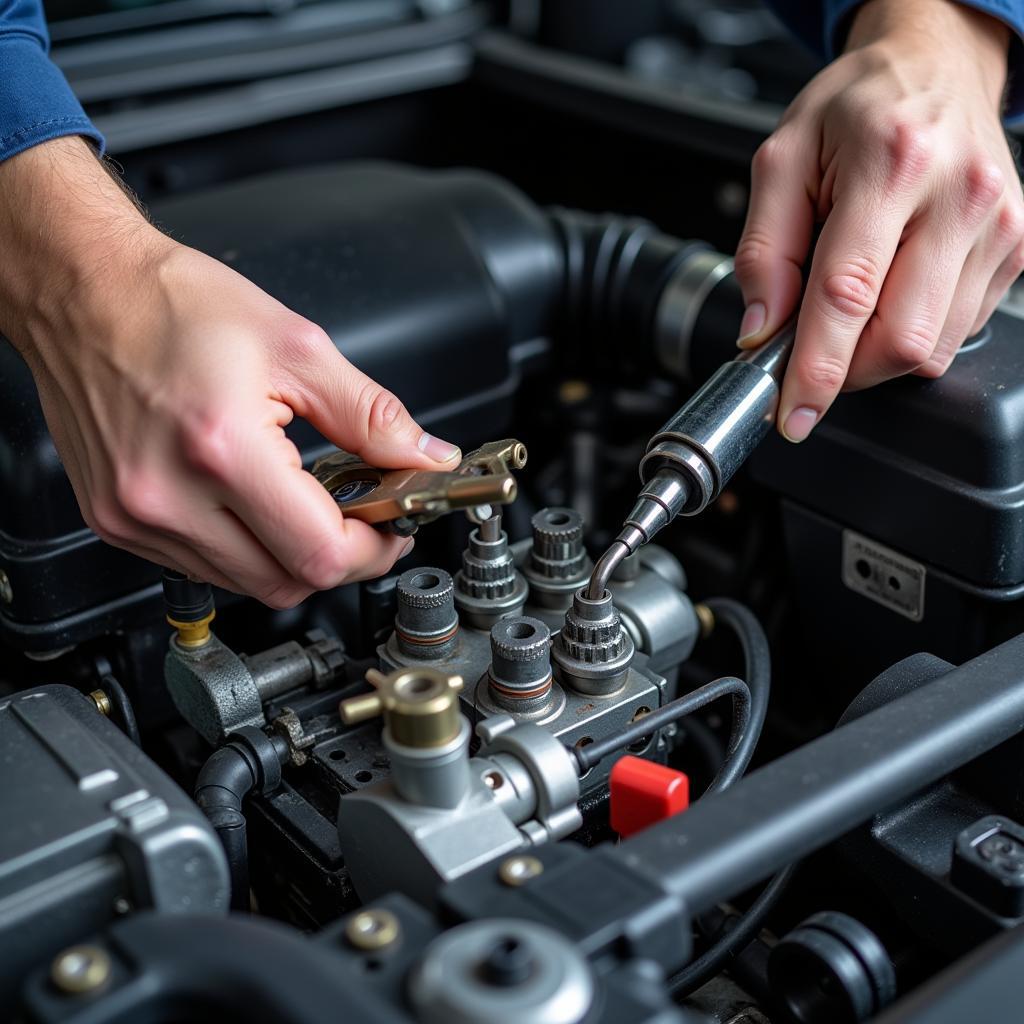When you step on the gas and your car hesitates, stutters, or doesn’t respond as expected, it can be a frustrating and potentially dangerous situation. This problem can manifest in various ways, from a slight delay in acceleration to a complete lack of power. Understanding the potential causes of this issue is the first step towards getting it fixed. This article will explore common reasons why you might experience a problem with your car when stepping on the gas, offering insights into diagnosis and solutions.
A car’s acceleration system is a complex interplay of various components, from the fuel system to the transmission. A problem with any of these components can lead to performance issues when you accelerate. Common culprits include a clogged fuel filter, a faulty fuel pump, a malfunctioning mass airflow sensor (MAF), a failing catalytic converter, or even issues with the transmission. Identifying the specific cause requires a systematic approach to troubleshooting.
Common Causes of Problems When Stepping on the Gas
Several issues can cause your car to hesitate or struggle when you accelerate. Here are some of the most frequent problems:
- Fuel System Issues: A clogged fuel filter restricts the flow of fuel to the engine, leading to hesitation and sluggish acceleration. Similarly, a failing fuel pump can struggle to deliver sufficient fuel, especially under load.
- Air Intake Problems: A dirty or faulty MAF sensor can provide incorrect readings to the engine control unit (ECU), disrupting the air-fuel mixture and causing hesitation.
- Ignition System Malfunctions: Worn spark plugs or faulty ignition coils can prevent the fuel-air mixture from igniting properly, resulting in misfires and reduced power.
- Exhaust System Restrictions: A clogged catalytic converter can create back pressure in the exhaust system, hindering engine performance and acceleration.
- Transmission Problems: A slipping or malfunctioning transmission can prevent power from being efficiently transferred to the wheels, resulting in slow acceleration.
Similar to car turbocharger problems, issues with the fuel system can significantly impact acceleration. Addressing these problems promptly is crucial for maintaining optimal vehicle performance.
 Car Fuel System Components and Their Function in Acceleration
Car Fuel System Components and Their Function in Acceleration
Diagnosing the Problem
Pinpointing the exact cause of the acceleration problem often requires a combination of diagnostic tests and careful observation. Here are some steps you can take:
- Check Engine Light: If the check engine light is illuminated, it’s a crucial first step to retrieve the diagnostic trouble codes (DTCs) using an OBD-II scanner. These codes can provide valuable clues about the underlying issue.
- Visual Inspection: Inspect the engine compartment for any obvious signs of damage, leaks, or loose connections. Pay attention to the fuel lines, air intake system, and electrical connections.
- Fuel Pressure Test: A fuel pressure test can determine if the fuel pump is delivering the correct pressure. Low fuel pressure can indicate a failing fuel pump or a clogged fuel filter.
- MAF Sensor Test: A MAF sensor test can verify if the sensor is providing accurate readings. A faulty MAF sensor can cause a variety of performance issues, including hesitation during acceleration.
Just as with warning signs of car problems, noticing subtle changes in your car’s performance can help prevent more significant issues down the line.
 Using an OBD-II Scanner to Diagnose Car Problems
Using an OBD-II Scanner to Diagnose Car Problems
Why Does My Car Hesitate When I Accelerate?
Hesitation when accelerating can stem from several sources, often related to fuel delivery, air intake, or ignition. A clogged fuel filter, a malfunctioning fuel pump, or a faulty MAF sensor are common culprits.
What Should I Do if My Car Doesn’t Accelerate When I Press the Gas Pedal?
If your car fails to accelerate, it’s crucial to address the issue immediately. Start by checking the fuel level, ensuring it’s not simply empty. If the problem persists, have the car towed to a qualified mechanic for diagnosis and repair. Driving a car with no acceleration can be extremely dangerous.
How to Fix a Car That Hesitates When Accelerating
Fixing a car that hesitates requires identifying the root cause. This could involve replacing a clogged fuel filter, cleaning or replacing the MAF sensor, or addressing more complex issues like a faulty fuel pump or transmission problems. Consulting a qualified mechanic is essential for accurate diagnosis and repair. Remember, preventative maintenance can help avoid many of these problems. Regular tune-ups, including spark plug replacement and fuel system cleaning, can significantly improve your car’s performance and longevity. Much like understanding exhaust problems with car, knowing the potential causes of hesitation can help you take proactive steps to prevent them.
Understanding environmental problems cars cause also encourages us to maintain our vehicles properly to minimize their impact.
 Mechanic Repairing Car Engine to Fix Acceleration Problem
Mechanic Repairing Car Engine to Fix Acceleration Problem
Conclusion
Experiencing a problem with your car when you step on the gas can be alarming, but by understanding the potential causes and taking appropriate diagnostic steps, you can effectively address the issue. Regular maintenance and prompt attention to warning signs can help prevent many of these problems and ensure the smooth and reliable performance of your vehicle. If you’re facing persistent issues, it’s crucial to consult a qualified mechanic. For further assistance and personalized guidance regarding your specific car problem step on gas and nothing happens, you can connect with AutoTipPro at +1 (641) 206-8880 or visit our office at 500 N St Mary’s St, San Antonio, TX 78205, United States.
 Car Maintenance Checklist for Preventing Acceleration Problems
Car Maintenance Checklist for Preventing Acceleration Problems
FAQ
-
What could be causing my car to hesitate when I accelerate? Several factors can contribute to hesitation, including fuel system issues, air intake problems, ignition system malfunctions, and transmission problems.
-
Is it safe to drive my car if it hesitates when I accelerate? While sometimes drivable, it’s best to have it checked by a mechanic to avoid potential further damage or safety hazards.
-
How can I prevent acceleration problems in my car? Regular maintenance, including timely replacement of fuel filters, spark plugs, and air filters, is crucial for preventing acceleration issues.
-
What should I do if my car doesn’t accelerate at all when I press the gas pedal? Do not attempt to drive the car. Have it towed to a qualified mechanic for diagnosis and repair.
-
Can a faulty catalytic converter cause acceleration problems? Yes, a clogged catalytic converter can restrict exhaust flow and hinder engine performance, leading to hesitation and reduced acceleration.
-
How much does it typically cost to fix a car that hesitates when accelerating? The cost varies depending on the underlying cause and the necessary repairs. It can range from a simple fuel filter replacement to more complex repairs like replacing a fuel pump or transmission components.
-
What are the warning signs of a failing fuel pump? Common signs include sputtering, hesitation, loss of power, and difficulty starting the engine.





Leave a Reply